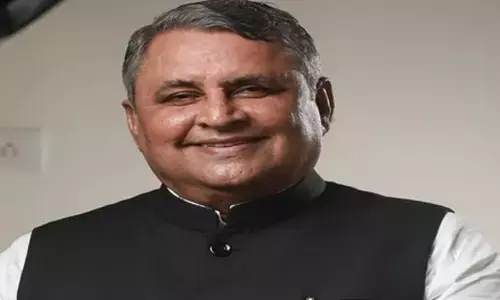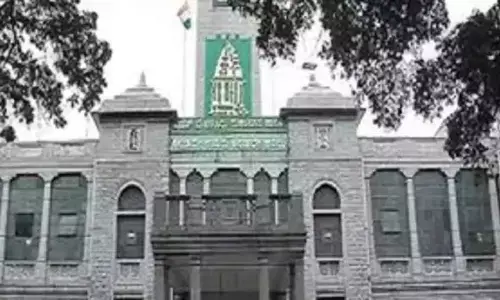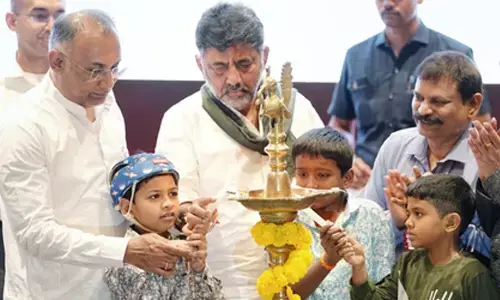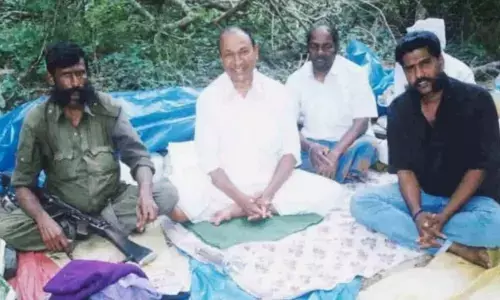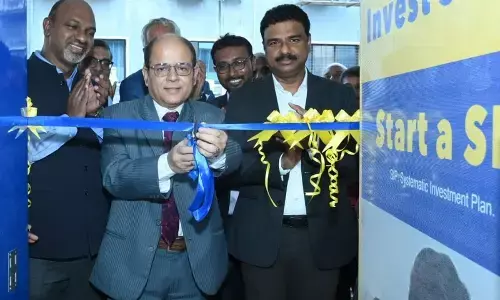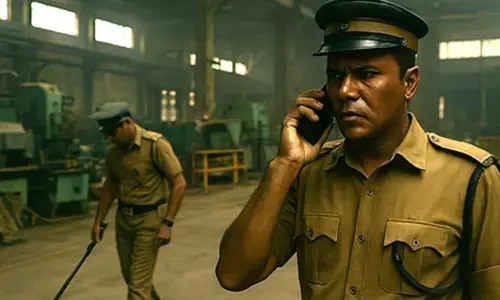Comrade bids adieu with his unfulfilled industrialisation dream
Share :

Veteran Left leader and former West Bengal Chief Minister Buddhadeb Bhattacharjee, who passed away at his Kolkata residence on Thursday morning at 80, was a firm believer of the slogan "Agriculture is our base, and industry is our future".
Kolkata: Veteran Left leader and former West Bengal Chief Minister Buddhadeb Bhattacharjee, who passed away at his Kolkata residence on Thursday morning at 80, was a firm believer of the slogan "Agriculture is our base, and industry is our future".
The veteran CPM leader was unwell for a while, suffering from respiratory problems that led to frequent hospitalisations. He was put on life support last year after he contracted pneumonia. He is survived by his wife Meera and daughter Suchetana.
An alumnus of Presidency College, Bhattacharjee was a school teacher before he joined politics full-time. After serving as an MLA and a state minister, he was elevated to the post of Deputy Chief Minister before Jyoti Basu stepped down as the Chief Minister in 2000. As the Chief Minister, Bhattacharjee led the Left Front to Assembly poll victories in 2001 and 2006.
Even during the closing years of the Left Front regime in West Bengal, when the entire state was rocked by a movement against land acquisition for industry, Bhattacharjee maintained that without industrial development, the long-term welfare of the workers could not be achieved.
And there lies the irony.
Sailing over a wave of slogans for industrialisation, the CPI(M)-led Left Front retained power in Bengal for a record seventh consecutive term in 2006 with a brute majority, winning 235 seats in the 294-member West Bengal Assembly.
Buoyed by the landslide victory, Bhattacharjee went about his task of fulfilling the industrialisation dream.
On the day of his swearing-in ceremony that year, Tata Group Chairman Ratan Tata announced to set up a Tata Motors small car factory at Singur in Hooghly district.
Proposals for WIPRO's second unit and Infosys’ first unit on the outskirts of Kolkata followed, and both these I-T giants were allotted 50 acres of land each.
Next came the proposal from Indonesia-based Salim Group for setting up a chemical hub at Nandigram in the East Midnapore district.
However, amid all these, discontent was growing among the farmers in both Singur and Nandigram over the proposed land acquisition by the state government for the industrial projects.
Trinamool Congress, the principal opposition party of the time, and its leader Mamata Banerjee did not make any mistake in sensing that the farmers' unrest could be the turning point in bringing down the Left Front government after three decades of rule.
The rest is history.
In Singur, the Trinamool led the agitations for days by blocking the National Highway in front of Tata Motors' Nano small car project site.
The Trinamool also launched agitations against fresh government approval for a Special Economic Zone (SEZ) which posed uncertainty for the proposed projects of WIPRO and Infosys.
Amid all these, Bhattacharjee did not hesitate to walk against his party line and stick to his industrialisation goal. He even said that unfortunately, he belonged to a party which still believed in 'strikes and lockouts'.
“Thousands of talented youths are passing out college every year with dreams in their eyes. Unfortunately, they have to travel to far-off places in search of jobs. We will have to stop this brain-drain at any cost and for that purpose, we need large-scale investments both in the manufacturing as well as the services sector,” he told mediapersons frequently at the Writers’ Buildings, which used to be the state secretariat then.
However, as the agitations in Singur and Nandigram grew in scale posing a serious threat to the state government, the latter was forced to scrap the project in Nandigram, before Ratan Tata announced the Group's decision to pull out from Singur in October 2008.
"I think some time back I mentioned that if somebody puts a gun to my head, you will pull the trigger or you take the gun away because I will not move my head. I think Ms (Mamata) Banerjee has pulled the trigger," Ratan Tata famously said that day.
Since then, mediapersons covering the events and the Chief Minister closely noticed Bhattacharjee getting into a shell, as his daily interactions with reporters started to become less frequent.
He isolated himself from the outer world further after the 2011 Assembly polls, which not only marked the end of the 34-year Left Front rule, but also his defeat from the Jadavpur Assembly constituency, a seat he held for five consecutive terms, at the hands of Trinamool's Manish Gupta.
Now with his demise, an 'industrially-rejuvenated Bengal' continues to remain an unfulfilled dream.

